
|
|
|
|
|
|
Let us come to you! We can have one of our specialized instructors come to you to teach your professionals right at your facility. Our on-site training services include the complete line of our standard courses as well as custom-designed solutions for your specific training needs. From fundamentals training for your newest technologist to expert-level training for your most challenging nuclear measurements applications. To contact us about a course click on the registration button next to the course you are interested in having us teach at your site. Mirion has an approach to training that offers users a specific series of courses to reach their chosen level of expertise,"Technician", "Specialist", or "Subject Matter Expert", in a certain subject. Outside of Mirion's Training Trax Process, we also offer many standalone courses that cover a variety of subjects to meet your training needs. To contact us about a course click on the registration button next to the course you are interested in having us teach at your site. If you don't see a course in the following list to meet your needs please click on the registration for Custom On-site Training and let us know what type of course you are looking for. |
|
Custom On-site Training  Looking for a specific type of course but don't see it in our regular catalog. Click the registration button to contact us about setting up a custom course for your company. | |
GP-101 Principles of Radiation Detection 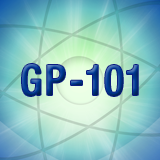
Click link below for full course description Links and Attachments 16.00 CEC REGISTER | |
GP-201 Fundamentals of Gamma Spectroscopy 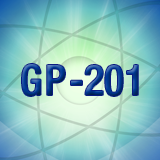
Click link below for full course description Links and Attachments 16.00 CEC REGISTER | |
GP-202 Fundamentals of Alpha Spectroscopy 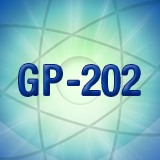
Click link below for full course description Links and Attachments 24.00 CEC REGISTER | |
GP-203 Fundamentals of Alpha/Beta Counting 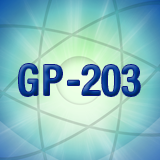
Click link below for full course description. Links and Attachments 16.00 CEC REGISTER | |
GP-301 Applied Principles of Gamma Spectroscopy 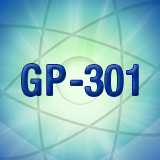
Click link below for full course description. Links and Attachments 16.00 CEC REGISTER | |
GP-302 Applied Principles of Alpha Spectroscopy 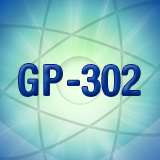
Click link below for full course description. Links and Attachments 16.00 CEC REGISTER | |
HS-113 HIS-20/WACS System Operations 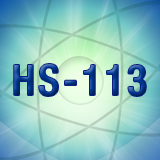 This course is intended for students with little or no previous experience with HIS-20 or WACS systems. It provides a comprehensive introduction to the use of the HIS-20 and Wacs systems and its application software. This course introduces students to the modules that HIS-20 comprises of. This includes, Personnel Information, Internal Dosimetry, External Dosimetry, Radiation Work Permits, Access Control, Inventory, radiological incident reporting, Survey Data Management and reports. This course also introduces students on the use of the Windows Access Control (WACS) system. Upon successful completion of this course, the student should be able to use HIS-20 systems to enter data and generate reports for managing survey data; internal and external dosimetry; radiation work permits; access control; radiological incident reporting; equipment inventory and issue; and personnel information. The student will also be able to use the Windows Access Control System for entry into radiological entries via an RWP. Click link below for full course description. Links and Attachments | |
HS-114 HIS-20/WACS System Operations Refresher 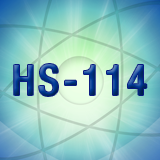 This course features a review of the application modules that make up the HIS- 20/WACS system. These include; Personnel Information, External and Internal Dosimetry, Radiation Work Permits, Access Control, Equipment and Source Inventory and Issuance, Survey Management and Radiological Incident Reporting, WACS configuration editor and WACS operations. Focus on the modules will be defined by the students needs. Upon successful completion of this course, the student should be able to use the HIS- 20/WACS system to enter data and generate reports for all of the HIS-20 modules. Click link below for full course description. Links and Attachments | |
HS-115 HIS-20/WACS Database Administration 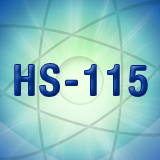 The course features a review of HIS-20 special management functions, and relational database system and operating system concepts which pertain to successful HIS-20 operation. The student will learn how to customize and maintain the HIS-20 environment, how HIS-20 uses operating system functionality to implement several important functions, and how to maintain the database system underlying HIS-20. It also teaches the student how to set up WACS through the configuration editor to optimize for your sites needs. Upon successful completion of this course, the student should be able to customize HIS-20 via lookup tables and site parameters; control the HIS-20 event scheduler and electronic dosimeter reader functions; control user security in the HIS-20 environment; configure HIS-20 printer definitions; understand the directory structure and command files which allow HIS-20 to operate; customize Uniface settings to manage multiple HIS-20 installations on a system; understand the basic architecture of the relational database system underlying HIS-20; query the database using SQL (Structured Query Language); maintain the database structure to optimize HIS-20 performance; and backup and restore the HIS-20 database. They will also be able to customize WACS via the WACS configuration editor. Click link below for full course description. Links and Attachments | |
SU-434 OpenEMS for Administrators 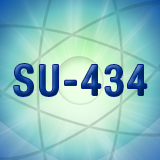 This course provides a brief overview of the OpenEMS Effluent Management Software including the regulatory basis, software architecture, and software features. After a review of the application administration screens, most of the time will be spent examining the calculations available in OpenEMS software and the setup needed to implement them. In addition, configuration of user access to the features of OpenEMS software, configuration of the OpenEMS Server to access multiple databases, how to examine the spreadsheets that contain the permit results, and annual report generation are also included. Click link below for full course description. Links and Attachments | |
SU-435 OpenEMS for Operators 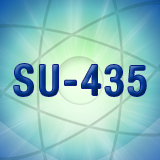 This 1-day course provides an overview of the OpenEMS Effluent Management Software including the regulatory basis, software architecture, and software features. Most importantly, the course takes the student through the steps involved in entering and processing liquid and airborne effluent release permits, including a review of the resulting release permit reports. Entry of composite sample information and updating of release permits when composite results are received is included in the course. Regenerating and scheduling of reports is also included. Click link below for full course description. Links and Attachments | |
SU-470 Genie Basic Operations 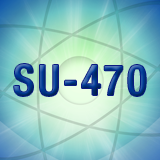
Click link below for full course description. Links and Attachments 16.00 CEC REGISTER | |
SU-472 Genie Algorithms 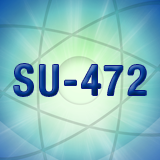
Click link below for full course description. Links and Attachments 24.00 CEC REGISTER | |
SU-474 Basic ISOCS Measurements 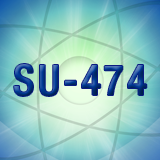 Mirion’s SU-474 training course was designed to introduce the basic features of the ISOCS Efficiency Calibration Software and the use of ISOCS software for in situ gamma spectroscopy measurement applications where traditional “source-based” calibrations may not be practical. Students will also be introduced to additional Mirion software features and specialized hardware components that are typically integrated with the ISOCS software. Approximately 60% of this 3-day course will be presented in lecture format, with the remaining 40% allocated for group discussion and practical exercises. Click link below for full course description. Links and Attachments 32.00 CEC REGISTER | |
SU-476 Advanced ISOCS Measurements 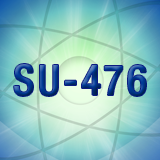 Mirion’s SU-476 training course was designed to provide advanced instruction for current users of ISOCS™ software, with emphasis on improved sample modeling, accuracy of analysis results, evaluation of total measurement uncertainty, and equipment deployment options for complex measurement applications. This course provides detailed recommendations for modeling complicated source distributions using the standard ISOCS geometry templates. Various advanced ISOCS applications will be discussed, including measurements of nuclide activity in near surface and subsurface soil, contamination on the surface of complex objects, and determination of nuclide activity vs. depth in sample material. Additional topics include use of ISOCS software for in vivo counting, underwater radioactivity measurements, and airborne radioactivity measurements. Numerous practical examples and student exercises will be presented and discussed. Approximately 60% of this 3-day course will be presented in lecture format, with the remaining 40% allocated for goup discussion and practical exercises. Click link below for full course description. Links and Attachments 24.00 CEC REGISTER | |
SU-477 LabSOCS Measurement 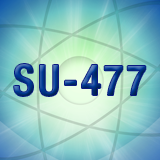 Mirion’s SU-477 training course was designed to provide comprehensive instruction for proper use of the LabSOCS™ Efficiency Calibration Software. This course will focus on proper selection and use of the standard LabSOCS geometry templates for accurate modeling of samples and creation of optimized efficiency calibration files. Lecture and discussion topics will include: use of the “Geometry Composer” interface, typical applications for LabSOCS sample geometry templates, tips for proper template parameter entry, use of the Materials Library editor, and proper use of LabSOCS calibration files within Genie™ software. Common sample geometries (including paper disk, charcoal-filled air filter cartridge, polyethylene bottle, and Marinelli beaker) will be selected as practical examples to demonstrate the complete LabSOCS efficiency calibration process. Cascade summing corrections will be discussed as a method to improve the accuracy of nuclide activity calculations during routine sample analyses. Approximately 60% of this 3-day course will be presented in lecture format, with the remaining 40% allocated for group discussion and practical exercises. Click link below for full course description. Links and Attachments 24.00 CEC REGISTER | |
SU-479 Abacos 2000 System Operations 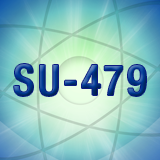 Mirion's SU-479-4 training course provides comprehensive instruction for proper use of the Abacos-2000 software package to perform whole body counting and other direct bioassay measurements. Students will be introduced to the basic features and functionality of the Abacos-2000 software, and to the hardware components that are typically integrated with standard Mirion in vivo counting systems. With prior approval from the instructor, the course content can be adjusted to include an extended review of fundamental gamma spectroscopy principles and basic Genie 2000 software operations (with reduced coverage of advanced Abacos-2000 software features and setup options). Approximately 60% of this 4-day course will be presented in lecture format, with the remaining 40% allocated for group discussion and practical exercises. Click link below for full course description. Links and Attachments | |
SU-510 Aegis Spectrometer Operations Training 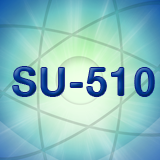 This course focuses on the setup and operation of the Aegis instrument, including battery operations, cooling system, communication, and data acquisition. Discussions on maintenance, troubleshooting and field applications are incorporated as well. A combination of lecture and practical examples is used for instruction. The training will cover control panel functions, dashboard operation, security, and integration with Mirion’s Genie 2000 software. Click link below for full course description. Links and Attachments | |
SU-520 FALCON 5000 Operations 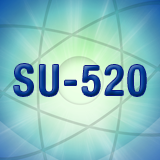 Mirion's SU-520-2 training course provides comprehensive instruction for proper operation of the FALCON 5000 portable, electrically-cooled, HPGe gamma spectroscopy system. This course begins with an overview the FALCON 5000 hardware and a brief review of applicable radiation detection and health physics principles. This course emphasizes the simplified user interface provided for basic operations, before progressing to more advanced setup requirements and Genie 2000 software options including certificate files, nuclide library files, analysis sequence files, and calibration procedures. Typical FALCON 5000 measurement applications will be discussed, including in situ measurements and optional use of ISOCS efficiency calibration files. Approximately 60% of this 2-day course will be presented in lecture format, with the remaining 40% allocated for group discussion and practical exercises. Click link below for full course description. Links and Attachments 16.00 CEC REGISTER | |
SU-530 NDA-2000 System Operations 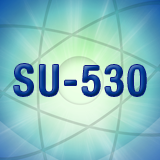 Mirion's SU-530-4 training course provides comprehensive instruction for proper use of the NDA-2000 software package to perform Non-Destructive Assay measurements. Students will be introduced to the basic features and functionality of the NDA-2000 software, and to the hardware components that are typically integrated with standard Mirion gamma and neutron counting systems. This course is typically presented at a customer's site, where students will have access to a fully-integrated and calibrated NDA-2000 counting system. Training course content will be adjusted to emphasize the specific type(s) of counter(s) used at that site. Approximately 60% of this 4 day course will be presented in lecture format, with the remaining 40% allocated for group discussion and practical exercises. Click link below for full course description. Links and Attachments 32.00 CEC REGISTER | |
SU-562 InSpector 1000 Operations 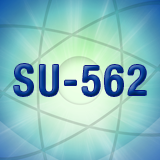 Mirion's SU-562-2 training course provides comprehensive instruction for proper operation of the InSpector 1000 hand held gamma spectroscopy equipment. This course begins with an overview the InSpector 1000 hardware and a brief review of applicable radiation detection and health physics principles. This course covers routine counting operations, instrument parameter setup, and calibration with associated gamma detectors. Typical InSpector 1000 measurement applications will be discussed, including in situ measurements using sodium iodide (NaI), lanthanum bromide (LaBr), and Cadmium Zinc Telluride (CZT) detectors. Additional topics include spectral data collection, spectral file transfer, optional use of ISOCS efficiency calibration files, and reporting of analysis results. This course also covers various options for data analysis within Genie 2000, and use of the specialized InSpector 1000 Maintenance software. Approximately 60% of this 2-day course will be presented in lecture format, with the remaining 40% allocated for group discussion and practical exercises. Click link below for full course description. Links and Attachments 16.00 CEC REGISTER | |
SU-568 Apex-Alpha Operations 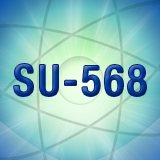
Click link below for full course description. Links and Attachments 24.00 CEC REGISTER | |
SU-570 Apex-Alpha/Beta Operations 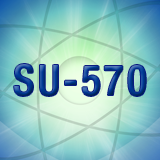
Click link below for full course description. Links and Attachments 16.00 CEC REGISTER | |
SU-572 Contamination Monitor Operations 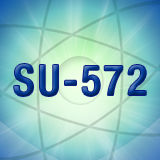 This 2-day course includes lectures and hands-on exercises to familiarize the attendee with the operating principles, setup, and calibration of the Mirion ARGOS-5AB with ZEUS option. These calibration principles can be applied and extended to the GEM-5 gamma exit monitor, the CRONOS tool/object monitor, and the SIRIUS-5 Hand/Cuff and Foot monitor. The steps required to properly setup, calibrate, alarm test, trouble shoot, and perform required maintenance on these monitors will also be covered. Click link below for full course description. Links and Attachments 16.00 CEC REGISTER | |
SU-601 Interpretation of Gamma Spectroscopy Results 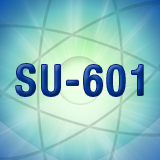
Click link below for full course description. Links and Attachments 24.00 CEC REGISTER | |
SU-635 Apex-Gamma Operations 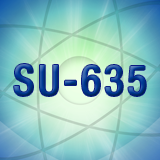
Click link below for full course description. Links and Attachments 32.00 CEC REGISTER | |
SU-636 Apex-Gamma - Advanced Topics 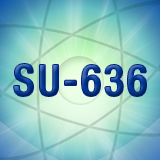
Click link below for full course description. Links and Attachments 24.00 CEC REGISTER | |
SU-640 Interpretation of Alpha Spectroscopy Results 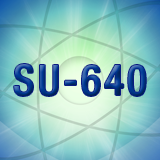
Click link below for full course description. Links and Attachments | |
SU-642 Apex-Alpha Advanced Topics 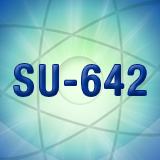
Click link below for full course description. Links and Attachments | |
SU-652 Apex-Alpha/Beta Advanced Topics 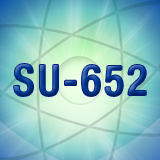
Click link below for full course description. Links and Attachments | |
SU-734 Apex-InVivo Operations 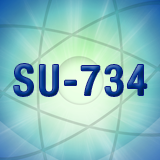 Mirion’s SU-734 training course provides comprehensive instruction for proper use of the Apex-InVivo™ software package to perform whole body counting and other direct bioassay measurements. Students will be introduced to the basic features and functionality of the Apex-InVivo software, and to the hardware components that are typically integrated with standard Mirion in vivo counting systems. With prior approval from the instructor, the course content can be adjusted to include an extended review of fundamental gamma spectroscopy principles and basic Genie™ software operations (with reduced coverage of advanced Apex-InVivo software features and setup options). Approximately 60% of this 3-day course will be presented in lecture format, with the remaining 40% allocated for group discussion and practical exercises. Click link below for full course description. Links and Attachments 32.00 CEC REGISTER | |
SU-735 IMBA Dose Calculations 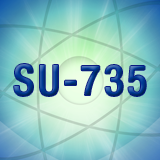 This 2-day course includes some review of the key features of Mirion's Apex InVivo software, an overview of the features and functionality of the IMBA software, and specialized instruction and recommendations for using Apex-InVivo counting results within IMBA to calculate intake and internal dose values. Click link below for full course description. Links and Attachments 16.00 CEC REGISTER | |
SU-803 Eclipse Alpha Beta Training 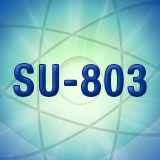 This 3-day course covers all aspects of current version Eclipse operation in conjunction with Tennelec Alpha/Beta counters. It is an introductory course that begins with hardware familiarization and proceeds through setup, calibration, and sample counting. The course then covers more advanced functionality such as the Microsoft Access database, custom report generation, and report modification using Seagate Crystal Reports. Attendees will examine the Microsoft Access database and learn how Eclipse data is stored. Seagate Crystal Reports is discussed in-depth during the class, and multiple versions of Crystal Reports are typically presented. Crystal Reports syntax, formula editing, and advanced features will be discussed. Attendees are encouraged to bring copies of their custom reports to be reviewed and edited during the class. "Hands on" learning is encouraged, both with the hardware and the software. Hardware varies by location, but typically includes vintage Tennelec systems as well as state of the art systems. Attendees are encouraged to provide feedback as to how Eclipse is currently being used in their labs, and what changes should be made in the future. Course content will be tailored to best satisfy the needs of the individual attendees. At least 35% of the class time is dedicated to hands-on exercises. Click link below for full course description. Links and Attachments 24.00 CEC REGISTER | |
SU-845 iSOLO Alpha Beta Training 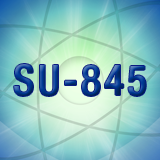 This 2-day course is designed to provide the Mirion iSOLO user with an in-depth understanding of the hardware and software requirements for basic system setup and operation. This 2-day course covers all aspects of iSOLO operation, including hardware familiarization, system setup, calibration, and routine alpha/beta sample counting. This course introduces the iLINK software designed to simplify setup and interface with the iSOLO, but independent system operation is also presented and discussed. This course is presented as a combination of lectures, hands-on exercises, and group discussion. With prior approval from the instructor, the course content can be modified to feature the iMATIC counting system instead of (or in addition to) the iSOLO system. Click link below for full course description. Links and Attachments 16.00 CEC REGISTER | |
SU-892 iCAM Advanced Topics 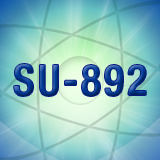 This 1-day course is a Subject Matter Expert (SME) level course designed for advanced iCAM users. This course includes detailed review of radon-progeny rejection algorithms, selection of iCAM filters and the implications of those selections, radon interference reduction techniques, and in-depth reviews of basic iCAM operations topics. This course includes both detailed lectures and reinforcement exercises for each of the course topics. Click link below for full course description. Links and Attachments | |
SU-901- AccuRad Personal Radiation Detector First Response Training 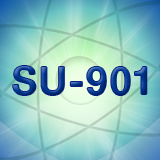 The award-winning AccuRad PRD from Mirion Technologies is everything you need from a personal radiation detector. Our PRD was developed for emergency responders in collaboration with emergency responders. At this training you learn how the AccuRad PRD is field ready and easy to use. Train how to deploy the AccuRad device and learn practical field tactics. See how easy the AccuRad PRD can be incorporated into your mission with the mobile app and management software. Click link below for full course description. Continuing Education Credits
Links and Attachments | |
SU-903 Basic Radiation Fundamentals First Response Training 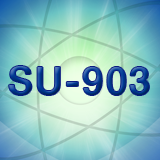 This course is an introduction to the basics of radiation, its components, types and sources or radioactive materials. You will learn what radiation is, how it exposes personnel, where it comes from, how we measure/detect it, how it can affect you, and how to reduce the risks associated with radiation. You will also learn what some of the realistic threats are that can cause panic and harm to personnel. Included will be some hands-on practical training using detectors and common sources of radiation. Click link below for full course description. Continuing Education Credits
| |
SU-904 Advance Radiation Fundamentals First Response Training 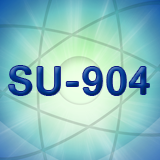 This course is a continuation of the Basic Radiation Fundamentals class. In this course you will learn about radioactive materials of concern, how to properly perform a search/survey for radioactive materials, setting up choke points for personnel/vehicles, the process for taking samples and/or radiation identification, special techniques for gathering radiation situational awareness and transportation of radioactive materials. Included will be some hands-on practical exercises to demonstrate how you can perform these tasks. Click link below for full course description. Continuing Education Credits
Links and Attachments | |
SU-905 Nuclear Radiological Detection for Emergency Response 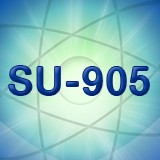 Since radiation is not detectable with our natural senses (see, taste, feel, hear, and smell), we need a device that can detect radiation for us. This course will teach you how radiation detectors work and what types of detectors are available. The class will also cover what type of detector is used for specific types of radiation. It will answer common questions like – will my detector support my mission; is there one detector that does it all; why do you need a detector; can this detector protect you, etc. Click link below for full course description. Continuing Education Credits
Links and Attachments | |
SU-906 Protecting Yourself During Nuclear Radiological Incidents 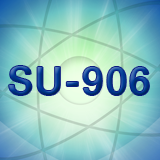 If or when a nuclear/radiological incident occurs, what actions should you take. This course will help you understand what the risks are and how to protect yourself, your family, and your co-workers from such an event. Examples of incidents can range from minor to catastrophic and include: auto accident with courier of medical isotopes; radiological dispersal device (aka dirty bomb); radiological exposure device; improvised nuclear device; fire at a location that contains radioactive materials; nuclear power accident, individual collector of radioactive materials; home radioactive material experiment such as the Radioactive Boy Scout incident, etc. Click link below for full course description. Continuing Education Credits
Links and Attachments | |
SU-907 Special Nuclear Materials First Response Training 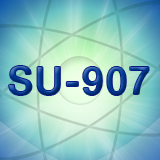 Special Nuclear Material (SNM) is a unique concern for everyone. In this course we will explore the characteristics of SNM, how to detect it, how to handle it, and where it comes from. We will also delve into why SNM is not easy to obtain and how difficult is it to put into use. In this course you will discover why it is so difficult to detect and learn the radiological, chemical, and toxicity concerns when dealing with SNM. Click link below for full course description. Continuing Education Credits
Links and Attachments |
 This 2-day course covers the complete range of radiation detection principles from sources of radioactive materials to advanced radiation detection applications and everything in between. This is a concentrated, concise, fast-paced course that includes basic physics and practical implications for all aspects of radiation measurements. This course is not a hardware or software operations course. The course is entirely in lecture format.
This 2-day course covers the complete range of radiation detection principles from sources of radioactive materials to advanced radiation detection applications and everything in between. This is a concentrated, concise, fast-paced course that includes basic physics and practical implications for all aspects of radiation measurements. This course is not a hardware or software operations course. The course is entirely in lecture format. This 3-day course is a combination of lecture and practical examples covering optimization of the Mirion Genie algorithms. Detailed descriptions, examples, and classroom exercises are used to facilitate learning the basic analysis steps, selection of analysis algorithms, and their setup for specific applications. Approximately 60% of this course is presented in lecture format, with the remaining time allocated for hands-on exercises and discussions. The algorithms are used in Genie and other related Mirion software packages such as Apex InVivo and Apex-Gamma. This course is intended to provide students with sufficient knowledge and understanding to optimize the Genie gamma analysis process and ensure high-quality analysis results for their gamma spectroscopy measurement applications.
This 3-day course is a combination of lecture and practical examples covering optimization of the Mirion Genie algorithms. Detailed descriptions, examples, and classroom exercises are used to facilitate learning the basic analysis steps, selection of analysis algorithms, and their setup for specific applications. Approximately 60% of this course is presented in lecture format, with the remaining time allocated for hands-on exercises and discussions. The algorithms are used in Genie and other related Mirion software packages such as Apex InVivo and Apex-Gamma. This course is intended to provide students with sufficient knowledge and understanding to optimize the Genie gamma analysis process and ensure high-quality analysis results for their gamma spectroscopy measurement applications. This 2-day course is designed primarily for germanium detector spectroscopy, although many of the topics are also applicable to scintillation detectors. The course emphasizes the use of fundamental principles of physics to explain features found in spectra, and the creation of libraries to aid in the interpretation of spectra. Students should acquire the tools and information they need to: understand “phantom peaks”, optimize gamma nuclide libraries to accurately identify and quantify nuclide activity, reduce the reporting of unidentified peaks, utilize methods for counting “hot” samples, understand “Dead Time” and its implications, and optimize the analysis of spectral data. Students are encouraged to bring examples of their spectral files for examination during the course. Additional topics of special interest may be covered depending upon student interest. Lab exercises with simulators and spectra are employed to demonstrate lecture topics. Analysis algorithms discussed and demonstrated are from the standard Genie™ software.
This 2-day course is designed primarily for germanium detector spectroscopy, although many of the topics are also applicable to scintillation detectors. The course emphasizes the use of fundamental principles of physics to explain features found in spectra, and the creation of libraries to aid in the interpretation of spectra. Students should acquire the tools and information they need to: understand “phantom peaks”, optimize gamma nuclide libraries to accurately identify and quantify nuclide activity, reduce the reporting of unidentified peaks, utilize methods for counting “hot” samples, understand “Dead Time” and its implications, and optimize the analysis of spectral data. Students are encouraged to bring examples of their spectral files for examination during the course. Additional topics of special interest may be covered depending upon student interest. Lab exercises with simulators and spectra are employed to demonstrate lecture topics. Analysis algorithms discussed and demonstrated are from the standard Genie™ software. This 3-day course is a combination of lecture and practical examples covering the optimization of Mirion Apex-Gamma counting systems and the underlying Genie software. Approximately 60% of the course will be presented in lecture format, with the remaining time allocated for hands-on learning activities and associated discussions. The course covers a full range of system optimization tips and techniques (noted below), and is conducted in an interactive style to encourage active participation by all attendees.
This 3-day course is a combination of lecture and practical examples covering the optimization of Mirion Apex-Gamma counting systems and the underlying Genie software. Approximately 60% of the course will be presented in lecture format, with the remaining time allocated for hands-on learning activities and associated discussions. The course covers a full range of system optimization tips and techniques (noted below), and is conducted in an interactive style to encourage active participation by all attendees.